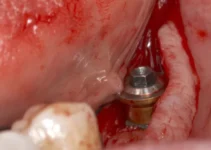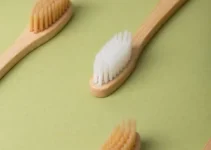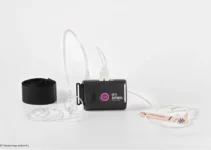Experiencing dry mouth upon waking can be an uncomfortable start to anyone’s day. This condition, medically referred to as xerostomia, often occurs due to reduced saliva production during sleep. Factors such as medication use, aging, or dehydration can exacerbate this condition. Understanding the underlying causes and exploring effective remedies, such as hydrating before bed, adjusting room humidity, or consulting with a healthcare professional, can alleviate the discomfort and improve your oral health.
Causes of Waking Up with Dry Mouth
Waking up with a dry mouth can be a discomforting experience that affects a significant portion of the population. Understanding the underlying causes is essential for addressing the issue effectively. This can be particularly important for those who wear dentures, use CPAP machines, or have general concerns about their oral health. In this section, we will explore some of the most common causes of waking up with a dry mouth. Various factors can contribute to this condition, ranging from lifestyle choices to medical conditions. By identifying these causes, individuals can take appropriate steps to mitigate the problem and improve their overall quality of life. Here, we’ll delve into three major reasons: dehydration, mouth breathing, and the side effects of medication.
Dehydration
Dehydration is one of the most prevalent causes of waking up with a dry mouth. When the body lacks sufficient water, it conserves moisture by reducing saliva production, leading to a parched feeling upon waking. Often, people fail to drink enough water during the day, exacerbating the problem.
Dehydration can be caused by a variety of factors, including:
- Insufficient fluid intake
- Excessive alcohol or caffeine consumption
- High-sugar diets
- Underlying medical conditions such as diabetes
To combat dehydration, it is crucial to maintain an adequate fluid intake throughout the day. Consuming water-rich foods like fruits and vegetables can also help keep the body hydrated. Additionally, limiting the intake of substances that promote dehydration, such as alcohol and caffeinated beverages, can be beneficial.
Mouth Breathing
Mouth breathing is another common cause of dry mouth upon waking. This habit can occur due to various reasons such as nasal congestion, sleep apnea, or simply habit. When you breathe through your mouth instead of your nose, the air that passes through your oral cavity dries out the saliva, leading to a dry mouth.
Common causes of mouth breathing include:
- Nasal congestion or obstruction
- Allergies
- Deviated septum
- Enlarged tonsils or adenoids
Tackling mouth breathing involves addressing any underlying nasal obstructions and creating a more conducive environment for nasal breathing. This might include using nasal strips, saline sprays, or even seeking medical intervention if structural issues like a deviated septum are present.
Side Effects of Medication
Many people are not aware that certain medications can cause dry mouth as a side effect. This is more common in medications that affect the body’s ability to produce saliva, such as antidepressants, antihistamines, and blood pressure medications.
Classes of medications commonly associated with dry mouth include:
- Antidepressants (e.g., SSRIs and tricyclic antidepressants)
- Antihistamines
- Diuretics
- Blood pressure medications
If you suspect that your medication is causing your dry mouth, it is important to consult your healthcare provider. They may adjust your dosage or suggest an alternative medication. Additionally, there are over-the-counter saliva substitutes and mouthwashes that can help alleviate the symptoms.
Understanding the causes of waking up with a dry mouth can lead to more effective treatment and prevention strategies. By addressing dehydration, mouth breathing, and medication side effects, you can significantly improve your condition. For more detailed insights into dental health and related topics, be sure to read our other articles.
Immediate Solutions for Dry Mouth
Dry mouth, also known as xerostomia, is a condition that can cause significant discomfort and affect your overall oral health. Fortunately, there are several immediate solutions that can help alleviate the symptoms associated with dry mouth. These remedies are aimed at increasing moisture in the mouth and ensuring that you can go about your day without the constant discomfort of dryness. Understanding and implementing these solutions can lead to a substantial improvement in your quality of life.
Here, we explore some of the most effective immediate solutions for dry mouth, including drinking water and using a humidifier. These approaches can help to quickly counter the effects of dry mouth, ensuring that the soft tissues in your mouth remain moist and healthy.
Drink Water
One of the simplest and most effective ways to combat dry mouth is to drink water. Keeping hydrated is essential for maintaining the moisture levels in your mouth. When you drink water, it helps to wash away food particles and bacteria, promoting better oral health and reducing the risk of infections. Aim to drink small sips of water throughout the day rather than consuming large amounts at once. This approach ensures a steady supply of moisture and can help to reduce the feeling of dryness.
In addition to drinking water, you can also benefit from consuming other hydrating beverages such as herbal teas or clear broths. Avoid caffeinated or sugary drinks, as these can exacerbate dry mouth symptoms. Here are some tips for staying hydrated:
- Carry a water bottle with you to sip on throughout the day.
- Set reminders to take regular sips of water.
- Incorporate hydrating foods like cucumber and watermelon into your diet.
By following these tips, you can help to maintain adequate moisture levels in your mouth and reduce the discomfort associated with dry mouth.
Use a Humidifier
Another effective solution for dry mouth, particularly at night, is to use a humidifier in your bedroom. A humidifier adds moisture to the air, which can prevent your mouth and throat from becoming excessively dry while you sleep. This is especially beneficial during the colder months when indoor heating can dry out the air. Using a humidifier ensures that the environment in which you sleep is conducive to maintaining adequate moisture levels in your mouth.
When using a humidifier, it is important to clean it regularly to prevent the growth of mold and bacteria. Follow the manufacturer’s instructions for cleaning and maintenance. Additionally, consider using distilled water in your humidifier to avoid mineral buildup. Here are some additional tips for using a humidifier effectively:
- Place the humidifier in a central location in your bedroom for even distribution of moisture.
- Run the humidifier while you sleep to ensure a humid environment throughout the night.
- Monitor the humidity levels in your room and adjust the settings as needed to maintain a comfortable level.
By using a humidifier, you can significantly reduce the discomfort associated with dry mouth, particularly during the night, and wake up feeling more refreshed.
Addressing dry mouth effectively can have a positive impact on your overall oral health and comfort. For more in-depth information on oral health and advanced treatments, consider reading other articles on our platform. Stay informed and take proactive steps to maintain a healthy mouth.
Long-term Strategies to Prevent Dry Mouth
Dry mouth, or xerostomia, is a condition that can significantly impact your quality of life. It can lead to difficulties in speaking, eating, and swallowing, as well as increase the risk of dental decay and gum disease. Understanding and implementing long-term strategies to prevent dry mouth is crucial for maintaining optimal oral health.
Among the numerous strategies, two key approaches stand out: reviewing medications with your doctor and treating underlying health conditions. These strategies focus on addressing the root causes of dry mouth rather than merely alleviating its symptoms.
Review Medications with Your Doctor
Many medications, both prescription and over-the-counter, can cause dry mouth as a side effect. It’s important to have a thorough discussion with your doctor about any medications you are taking, especially if you are experiencing symptoms of dry mouth. Some common types of medications that can contribute to dry mouth include:
- Antidepressants and antianxiety medications
- Antihistamines and decongestants
- Blood pressure medications
- Muscle relaxants and pain medications
Your doctor may be able to adjust the dosage or switch you to a different medication that doesn’t have dry mouth as a side effect. Moreover, they can recommend additional strategies or treatments to manage the side effects more effectively. Open communication with your healthcare provider is essential in managing medication-induced dry mouth.
Treat Underlying Health Conditions
Dry mouth can often be a symptom of underlying health conditions such as diabetes, Sjögren’s syndrome, or Parkinson’s disease. For instance, diabetes can lead to increased blood sugar levels which can, in turn, lead to reduced saliva production. Addressing these primary health issues can greatly alleviate the symptoms of dry mouth.
If you have an existing health condition that may be contributing to dry mouth, it is crucial to follow your treatment plan and take proactive steps to manage your condition. This might involve:
- Regular monitoring and control of blood sugar levels for diabetes patients
- Using immunosuppressive or anti-inflammatory medications for Sjögren’s syndrome
- Regular neurologist visits and medication adjustments for Parkinson’s disease
Collaboration between your primary care physician, specialists, and your dentist can lead to a more comprehensive approach in managing dry mouth related to these health conditions. Interdisciplinary care can significantly enhance the effectiveness of the treatment plan.
In summary, long-term strategies to prevent dry mouth require a multifaceted approach that encompasses reviewing medications with your healthcare provider and addressing any underlying health conditions. Taking these proactive steps can help you manage and prevent the discomfort associated with dry mouth effectively. For more in-depth information on related topics, be sure to explore our other articles on oral health and wellness.
When to Seek Professional Help
It’s crucial to know when to seek professional help for your dental issues. Early intervention often leads to better outcomes and less invasive treatments. While regular dental check-ups can catch many problems early, there are specific signs and symptoms you should never ignore. Here’s what you need to know about when to seek professional help.
Understanding the importance of timely intervention can not only save your teeth but also prevent more severe health issues. Dental problems can often be silent, meaning symptoms may not be obvious until the issue has become severe. Let’s delve into the signs that indicate it’s time to see a doctor, the diagnostic tests that might be performed, and the treatment options available.
Signs It’s Time to See a Doctor
There are numerous signs that indicate it’s time to seek professional help for your dental health. Persistent pain is one of the most common indicators. If you’re experiencing toothache, gum pain, or jaw pain that lasts more than a couple of days, it’s time to consult a dentist. Pain is your body’s way of signaling that something is wrong, and delaying a visit can lead to more severe issues.
Another significant sign is bleeding gums. While occasional bleeding might occur due to aggressive brushing, consistent bleeding can indicate gum disease, which requires professional treatment. Swollen or red gums are also a warning sign. If you notice loose teeth or changes in bite alignment, these can be signs of underlying bone loss or periodontal issues. Additionally, persistent bad breath and sores that don’t heal within two weeks are red flags that warrant a professional evaluation.
Diagnostic Tests
Once you’ve decided to see a professional, a variety of diagnostic tests may be performed to identify the root cause of your symptoms. X-rays are one of the most common tools used to assess the condition of your teeth and jawbone. They can reveal cavities, bone loss, and other issues not visible to the naked eye.
Periodontal probing is another diagnostic method used to measure the depth of the pockets around your teeth. Deeper pockets can indicate gum disease. For more advanced diagnostics, a Cone Beam CT scan may be utilized to provide a 3D image of your mouth, offering a comprehensive view of your dental health.
Additionally, your dentist might take impressions of your teeth to create a detailed model of your bite and alignment. This can help in diagnosing issues with jaw alignment or planning for interventions like implants or orthodontics.
Treatment Options
Once a diagnosis has been made, your dentist will discuss treatment options tailored to your specific needs. For issues like cavities and minor decay, fillings and crowns are common treatments. These procedures restore the integrity of the tooth and prevent further decay.
For gum disease, a range of treatments from scaling and root planing (a deep cleaning procedure) to surgical interventions may be recommended. In severe cases, bone grafting may be necessary to restore lost bone tissue before other treatments like implants can be considered.
For more complex cases involving tooth loss, dental implants are often the gold standard. Implants provide a durable and natural-looking solution. The process involves placing a titanium post into the jawbone, which then supports a crown. This not only restores functionality but also prevents bone loss.
Whatever the issue, seeking professional help early ensures that you receive the most effective treatment options available. For more in-depth information on various dental treatments, be sure to read our other articles.
Common Questions About Waking Up with a Dry Mouth
If you often wake up with a dry mouth, it can be not only uncomfortable but also concerning. Below, you can find a common question addressed to help you understand this condition better.
Why do I wake up with a dry mouth?
Waking up with a dry mouth can be caused by several factors including dehydration, the natural reduction in saliva production during sleep, mouth breathing, or snoring. Certain medications, such as those for blood pressure and depression, can also contribute to dry mouth. Other possible causes include underlying health conditions like diabetes or Sjogren’s syndrome. Addressing the underlying cause is crucial for alleviating this discomfort.

My name is Salman Kapa, a 73-year-old expert in bone regeneration and dental implantology. With decades of experience in the field, I am dedicated to advancing our understanding of oral health and hygiene. Through my research and writing, I aim to contribute to the development of innovative solutions in dental care.




